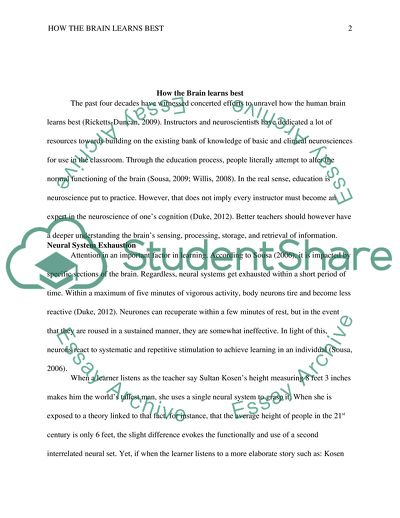How the Brain Learns Best Research Paper Example | Topics and Well Written Essays - 500 words. https://studentshare.org/medical-science/1806311-how-the-brain-learns-best
How the Brain Learns Best Research Paper Example | Topics and Well Written Essays - 500 Words. https://studentshare.org/medical-science/1806311-how-the-brain-learns-best.


